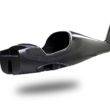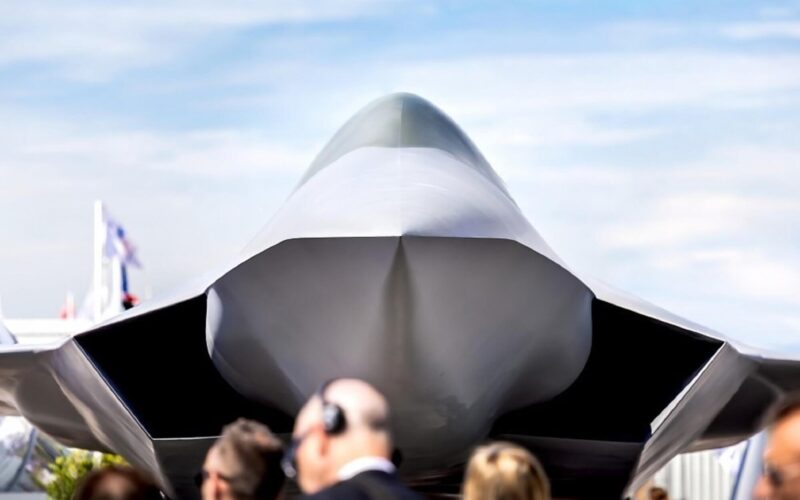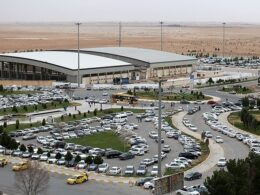Contrary to what was announced by the German authorities, the industrial agreement on the Future Combat Air System program has not yet been reached, according to French sources. Dassault’s CEO downplayed what he defined as a “political” announcement.
On November 18, 2022, German Defense Minister Christine Lambrecht announced that “after intense negotiations, an agreement between industrialists was reached” on the FCAS, ending an almost year-long stalemate.
The FCAS program brings together France, Germany, and Spain, and involves various European manufacturers under the leadership of Dassault Aviation and Airbus Defense and Space. But the forced union between the two planemakers has proved difficult.
Defined as a “system of systems” by its stakeholders, the FCAS program is composed of seven subprograms, or “pillars”. Dassault was initially announced as the leader of the Next Generation Fighter (NGF) subprogram, with Airbus taking the lead on the Unmanned systems Remote Carrier, the Combat Cloud and the Stealth pillars.
But on February 5, 2021, then-German Chancellor Angela Merkel sowed doubt on the distribution of tasks among manufacturers for the NGF.
“It is a project under French leadership, but it is still necessary that the German partners can be at a satisfactory level vis-à-vis their partners,” Merkel stressed. “We must therefore address the questions of industrial property, the sharing of tasks, and the sharing of leadership very precisely.”
Dassault Aviation, alone against all?
A month after Merkel’s words, Éric Trappier, the Chairman and Chief Executive Officer of Dassault Aviation, was heard by the Committee on Foreign Affairs, Defense and Armed Forces of the French Senate, to discuss the relevance of the project and its viability.
He criticized the inclusion of Spain and of Airbus later in the project, which created an imbalance in the negotiations between states and manufacturers, specifically in the development of the fighter.
“For the NGF and Pillar 1, it’s a two-person household, with Airbus and Dassault. But then, Airbus will weigh two-thirds and Dassault a third. It shifted from the 50/50 equilibrium where Dassault held the lead, to two-thirds/one-third,” Trappier explained.
Specifically, Germany and Airbus demanded to have the final word on the flight controls of the NGF, the cockpit, and the stealth capability, and to share intellectual property rights within the pillar.
Under these conditions, Dassault refused to move forward, with Trappier explaining: “If I give my background [knowledge – ed. note] today and the program is canceled in two years, how would I be protected from the competition?”
Several times now, Trappier has raised the possibility of a plan B should the FCAS fail. Dassault’s CEO advocates for an alternative “method of governance” that would see the industrial base of the program being handpicked by the prime contractor instead of the governments. A similar system was used to develop the nEUROn stealth combat drone demonstrator, a program which involved six European countries.
Communication campaign, or mounting pressure from Germany?
Lambrecht’s announcement on November 18, 2022, that things were moving forward was quite unsurprisingly welcomed by Airbus. The manufacturer praised this “big step forward for this European flagship defence programme,” though it warned that “a number of formal steps in the respective countries have to be taken in order to allow a speedy contract signature.”
The French presidency reacted in similar terms. “The political agreement on the FCAS is a big step forward and – especially in the current international context – an important signal of the excellent cooperation between France, Germany, and Spain,” it said in a press release, though emphasizing that “France assumes the role of leader of the project.”
Thus, all parties seem to have welcomed the news. All? Not quite.
In an interview with the French radio channel RTL on November 21, 2022, Trappier downplayed Lambrecht’s declaration as a “political pseudo-announcement.”
“I think the German approvals – which were difficult to get – came out and that resulted in leaks,” he explained, before confirming that “nothing has been signed between Dassault and Airbus.”
If the political parties reached an agreement, little would have changed on the industrial side, a source close to the matter told the French business media Challenges.
“98% of the subjects are settled, but Dassault will not sign if the remaining 2% are not resolved,” the source said. “There is, obviously, a German attempt to twist the arm of France. If Berlin, but also the Elysée [the French presidency – ed. note], had wanted to annoy Dassault, they would not have gone about it any other way.”
More details could emerge on November 25, 2022, when French Prime Minister Elisabeth Borne is due to visit her counterpart Olaf Scholz in Berlin.












